Film Critic Roger Ebert Dies
Famed film critic and Urbana native, Roger Ebert has died Thursday at the age of 70. He had the most-watched thumb in Hollywood.
Ebert's death was first announced Thursday by the Chicago Sun-Times, where he worked for decades as a film critic.
Friends and colleagues of Ebert are using words like ‘intellectual’ and ‘humanitarian’ to describe the Pulitzer Prize-winning critic, who could render a decision that influenced a nation of moviegoers and could sometimes make or break a film.
The heavy-set writer in the horn-rimmed glasses teamed up on TV with Gene Siskel to create a format for criticism that proved enormously appealing in its simplicity: uncomplicated reviews that were both intelligent and accessible and didn't talk down to ordinary movie fans.
Despite this influence, Ebert considered himself "beneath everything else a fan."
"I have seen untold numbers of movies and forgotten most of them, I hope, but I remember those worth remembering, and they are all on the same shelf in my mind," Ebert wrote in his 2011 memoir titled "Life Itself."
“I published my first newspaper in grade school – it was called the Washington Street news, and I gave it away to the neighbors," Ebert said in an appearance on WILL-TV in 1995. "And in high school, I worked for the high school paper, and on and on.”
Steve Shoemaker attended Urbana High School with Ebert, who was a writer for the (Champaign) News-Gazette those years. He said Ebert’s earlier days as a journalist included writing about high school sports, including Shoemaker’s basketball games at Urbana High.
“Roger’s skills as a critic showed up very early, but he could be very kind," Shoemaker said. "He could analyze things well, he was brilliant. He could see flaws in people’s arguments, and he was a good debater. But he also could be very kind to people. Not only famous people, film directors. But a high school athlete.”
He attended the University of Illinois at Urbana-Champaign and was editor of the student newspaper, The Daily Illini.
Retired Journalist Dave Reed worked with Ebert at the Daily Illini in the early 60’s, and during the critic’s early days at the Chicago Sun-Times. Reed said Ebert was Editor of the Daily Illini when President John F. Kennedy was assassinated. He said his colleague took charge as journalist should.
“As soon as you heard the news, you headed for the newspaper, because you knew there was a job to be done," Reed said. "And of course, Ebert was there, and directed that effort and in the middle of overseeing all that we were doing, he also wrote a great editorial and column. I thought they were just fabulous in the middle of everything else.”
"He means a lot to the kids at the Daily Illini," said Jan Slater, dean of the College of Media at the University of Illinois. "He does what everybody wants to do, and that was to provide a story that's engaging and that everybody wants to read. ... He was always a journalist first.''
Ebert maintained a strong link to The Daily Illini.
Last year, he helped the paper raise money as it struggled financially, and worked with students on the guide to the annual film festival he held on campus.
The current Daily Illini editor, junior Darshan Patel, said he and other students are "in shock" over Ebert's death.
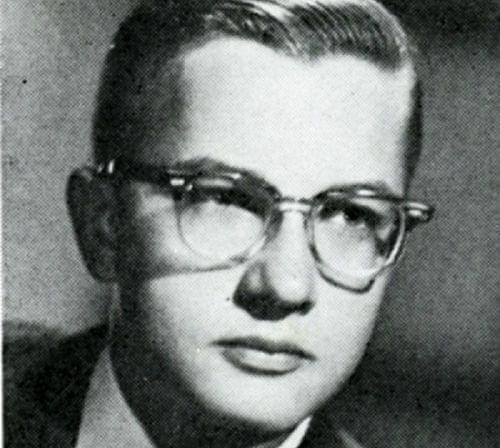 After graduating in 1964, Ebert spent a year on scholarship at the University of Cape Town in South Africa and then began work toward a doctorate in English at the University of Chicago.
After graduating in 1964, Ebert spent a year on scholarship at the University of Cape Town in South Africa and then began work toward a doctorate in English at the University of Chicago.
He went on to become a stringer for the Chicago Sun-Times, and when the paper's film critic left, he was offered the job.
"My mother's friends never knew what I did," he recalled. " 'And how is Roger?' They would have sons who were lawyers, doctors. 'And how is Roger? Is he still just going to the movies?' "
Joining the Sun-Times part-time in 1966, he pursued graduate study at the University of Chicago and got the reviewing job the following year. His reviews were eventually syndicated to several hundred other newspapers, collected in books and repeated on innumerable websites, which would have made him one of the most influential film critics in the nation even without his television fame.
His first review for the Sun-Times was on April 18, 1967 for the film "Galia."
"All good things have an end, and the last section of the film is given over to psychological hanky-panky a la Hitchcock," Ebert wrote about the film.
His 1975 Pulitzer for distinguished criticism was the first, and one of only three, given to a film reviewer since the category was created in 1970._by_roger_ebert__large.jpg&fid=8&d=21697)
In addition to winning the Pulitzer, Ebert was the first critic to have a star on Hollywood's Walk of Fame. During a 2005 interview with NPR, he encouraged audiences to push themselves beyond Hollywood.
"If you only see films about people just like yourself, why even bother to go? Because you already know about yourself," he said. "You can only find out about yourself by learning about others."
Ebert's breezy and quotable style, as well as his deep understanding of film technique and the business side of the industry, made him an almost instant success.
He soon began doing interviews and profiles of notable actors and directors in addition to his film reviews — celebrating such legends as Alfred Hitchcock, John Wayne and Robert Mitchum. Ebert also offered words of encouragement for then-newcomer Martin Scorsese, who was one of three filmmakers working on a bio-documentary about Ebert at the time of his death.
In 1969, Ebert took a leave of absence from the Sun-Times to write the screenplay for "Beyond the Valley of the Dolls." The movie got an "X" rating and became somewhat of a cult film.
Although his movie reviews were syndicated, it was his television work that took the heavyset, bespectacled Ebert to a national audience. In 1978, a three-year-old local film-review show he hosted with his chief Chicago rival, the Tribune's Gene Siskel, was picked up for syndication by PBS.
"What Roger brought to the show was a very clear vision of what he was trying to communicate to viewers," said Thea Flaum, the show's executive producer. "Not worried about how he appeared. Only worried about getting across what he wanted you, sitting at home watching him, to know. And that's an enormous strength — maybe it's the essence of what a great critic really is, and I think that's what made the show fly."
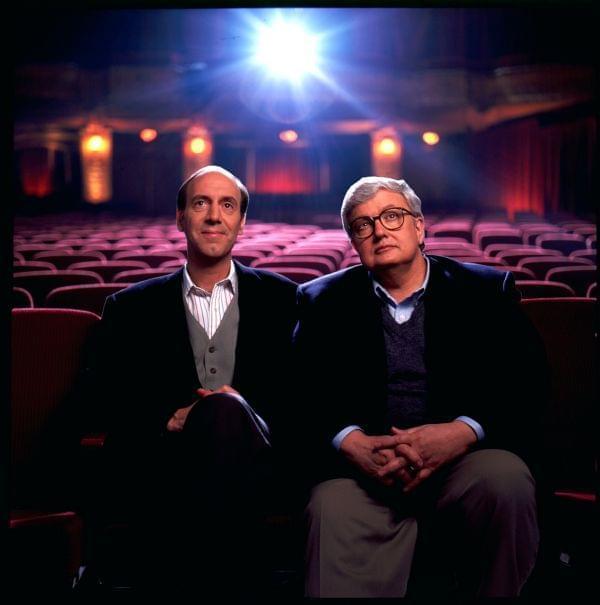
On the air, Ebert and Siskel bickered like an old married couple and openly needled each other. To viewers who had trouble telling them apart, Ebert was known as the fat one with glasses, Siskel as the thin, bald one.
While Siskel and Ebert may have sparred on air, they were close off camera.
The show continued after Siskel's death from a brain tumor in 1999, with Ebert eventually joined by Richard Roeper.
"He's in my mind almost every day," Ebert wrote in his autobiography. "He became less like a friend than like a brother."
At the height of his career, Ebert wrote as many as 300 reviews a year, published books, and covered the Academy Awards and the major film festivals every year as a working journalist — all this in addition to the show. He also programmed his own film event — Roger Ebert's Overlooked Film Festival, featuring movies he considered great but ignored.Ebert was an author, writing more than 20 books that included two volumes of essays on classic movies and the popular "I Hated, Hated, Hated This Movie," a collection of some of his most scathing reviews.
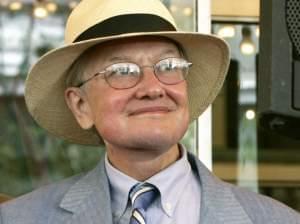
The nation's best-known movie reviewer "wrote with passion through a real knowledge of film and film history, and in doing so, helped many movies find their audiences," director Steven Spielberg said. His death is "virtually the end of an era, and now the balcony is closed forever."
"Sometimes you loved him," said Actress Glenn Close. "Sometimes you hated him as you do every critic. But I was thinking — I think that a great critic is somebody that has a real love for what he's criticizing, and I think he was that."
Ebert was diagnosed with thyroid cancer in early 2002. After several surgeries, he was left unable to speak — but he continued to watch and review movies and carved out a prodigious digital profile on his Sun-Times blog. He also kept up a Facebook page, a Twitter account with more than 800,000 followers and a blog, Roger Ebert's Journal.
The Internet was where he forged relationships with his readers, posting links to stories he found interesting and writing long pieces on varied topics, not just film criticism. He wittily interacted with readers in the comments sections and liked to post old black-and-white photos of Hollywood stars and ask readers to guess who they were.
"My blog became my voice, my outlet, my 'social media' in a way I couldn't have dreamed of," Ebert wrote in his memoir. "Most people choose to write a blog. I needed to."
Scott Jordan Harris, a British man who wrote for Ebert's website, said he was moved that the critic lost his voice but "never let that make him silent."
Always modest, Ebert had Midwestern charm but stuck strongly to his belief that critics honestly tell audiences "how better to invest two hours of their lives."
In early 2011, Ebert launched a new show, "Ebert Presents At the Movies." The show had new hosts and featured Ebert in his own segment, "Roger's Office." He used a chin prosthesis and enlisted voice-over guests or his computer to read his reviews.
Fans admired his courage, but Ebert told The Associated Press that bravery had "little to do with it."
"You play the cards you're dealt," Ebert wrote in an email in January 2011. "What's your choice? I have no pain. I enjoy life, and why should I complain?"
Ebert's passing comes just a couple weeks before the 15th annual film festival.
The festival was originally known as Roger Ebert's Overlooked Film Festival, but it’s commonly known as Ebertfest.
In an April 2000 interview on WILL-TV, Ebert talked about how he was first approached by the University of Illinois’ College of Communications to start it.
“At first I thought, ‘Well, critics shouldn’t be doing this because then you’re asking favors of studios whose films you have to view. It could be a conflict,"’ Ebert said. "Then I thought why not put the shoe on the other foot, and instead of them doing me a favor, our festival could do a favor for overlooked films or overlooked genres.”
In a post on Twitter, organizers of Ebertfest mourned Roger Ebert’s passing with quote terrible sadness.
"All of us at Ebertfest are very saddened by the news of our dear friend Roger’s passing," according to a statement on the festival's website. "He was a remarkable man who influenced journalists and film lovers the world over."
This year’s Ebertfest will continue as planned from April 17-21 at Champaign’s Virginia Theatre.
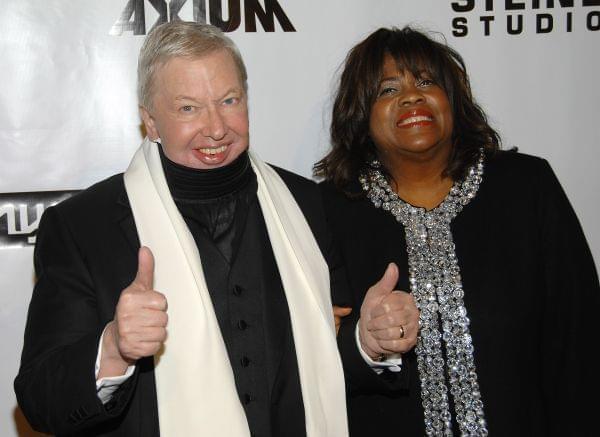
Ebert found a professional and personal partner in Chaz, who acted as his co-producer. Siskel's daughters were flower girls when Ebert married his wife, Chaz, in 1992.
Ebert often would use his computer voice to say "I love you" to Chaz during television interviews.
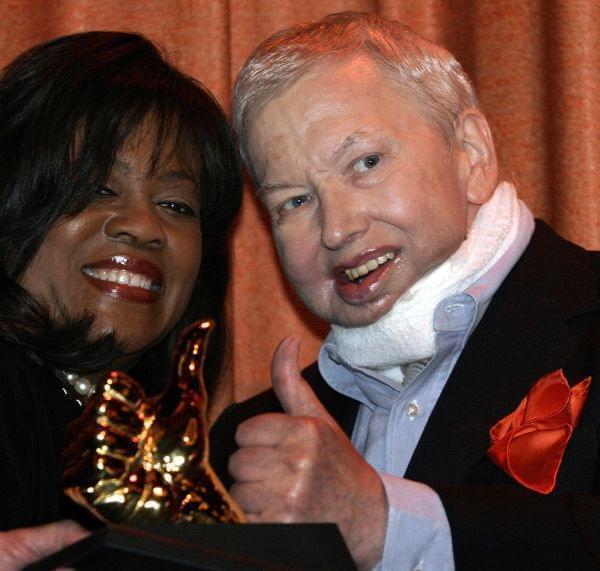
On Thursday, she issued a statement following his death. She said that she is devasted by Ebert's death, and said that they were preparing for hospice care, "when he looked at us, smiled, and passed away. No struggle, no pain, just a quiet, dignified transition."
"He fought a courageous fight," she added. "I’ve lost the love of my life and the world has lost a visionary and a creative and generous spirit who touched so many people all over the world. We had a lovely, lovely life together, more beautiful and epic than a movie. It had its highs and the lows, but was always experienced with good humor, grace and a deep abiding love for each other."
Ebert said he did not fear death because, writing in 2010 that he didn't believe there was anything "on the other side of death to fear."
"I was perfectly content before I was born, and I think of death as the same state," he wrote. "I am grateful for the gifts of intelligence, love, wonder and laughter. You can't say it wasn't interesting."
Two days before his death, Ebert announced on his blog that he was undergoing radiation treatment for a recurrence of cancer.
"So on this day of reflection I say again, thank you for going on this journey with me. I'll see you at the movies." Ebert wrote.
In his 2011 memoir, Life Itself, Ebert wrote about the importance of contributing joy to the world — no matter what our problems, our health and circumstances. He was happy, he said, to have lived long enough to find that out.
Filmmaker Steve James, who is directing the documentary 'Life Itself' about Ebert, said in a post Twitter that the project will continue.
As of Thursday night, the tributes to Roger Ebert were continuing to pour in from from directors, fellow critics and others:
"Roger loved movies. They were his life. His reviews went far deeper than simply thumbs up or thumbs down. He wrote with passion through a real knowledge of film and film history, and in doing so, helped many movies find their audiences. Along with Gene Shalit, Joel Siegel, and of course Gene Siskel, Roger put television criticism on the map. Roger's passing is virtually the end of an era and now the balcony is closed forever.'' -- Movie director Steven Spielberg.
"Roger and Gene (Siskel) together again. End of an era.'' -- Oprah Winfrey on Twitter.
"Roger was the movies. When he didn't like a film, he was honest; when he did, he was effusive _ capturing the unique power of the movies to take us somewhere magical. Even amidst his own battles with cancer, Roger was as productive as he was resilient _ continuing to share his passion and perspective with the world. The movies won't be the same without Roger, and our thoughts and prayers are with Chaz and the rest of the Ebert family.'' -- President Barack Obama, in a statement.
"Roger Ebert was one of the great champions of freedom of artistic expression. When the power of independent film was still unknown and few would support it, Roger was there for our artists. His personal passion for cinema was boundless, and that is sure to be his legacy for generations to come.'' -- Robert Redford, actor and founder of the Sundance Institute, in a statement.
"Indefatigable, compassionate, irreverent, and equipped with a first-rate bullshit detector. That was/is Roger Ebert.'' -- Film critic Glenn Kenny on Twitter.
"From the mightiest blockbuster to the smallest independent film, Roger Ebert devoted his career to sharing his love of film with generations of moviegoers. The role of critics is to call them as they see them and Roger did so with integrity.'' -- Directors Guild of America President Taylor Hackford.
"He wrote (the) book. There was no business before him and Gene Siskel. He pioneered that crossover from print to broadcast media, and he did it with such professionalism and perception and passion. He was an amazing contributor to our industry, and his influence will be long felt.'' -- Warner Bros. distribution executive Jeff Goldstein
"It will leave a huge void. He was the most widely read critic. For many people that's how they understand film criticism. They understand film criticism in terms of Roger Ebert. He is the icon of that medium for most people. He's the one film critic they can name. He loomed so large. Especially toward the end of his life.'' -- Film critic Ignatiy Vishnevetsky, who writes for rogerebert.com and was a host on Ebert's 2011 show ``Ebert Presents at the Movies.''
"we lost a thoughtful writer, i remember my first review from him, pi (i got his and siskel's thumbs) it was a career highlight.'' -- Darren Aronofsky, who directed the 1998 movie ``Pi,'' wrote on Twitter.
"Roger Ebert was one of the great champions of freedom of artistic expression. When the power of independent film was still unknown and few would support it, Roger was there for our artists. His personal passion for cinema was boundless, and that is sure to be his legacy for generations to come." — Robert Redford, actor and founder of the Sundance Institute, in a statement.
"From the mightiest blockbuster to the smallest independent film, Roger Ebert devoted his career to sharing his love of film with generations of moviegoers. The role of critics is to call them as they see them and Roger did so with integrity." — Directors Guild of America President Taylor Hackford.
"Roger Ebert championed the art of the moving image, and by the courage of his personal example demonstrated how much movies matter.'' -- American Film Institute President and CEO Bob Gazzale, in a statement.
"We are terribly saddened by the news of the passing of our friend Roger Ebert. More than a friend, Roger was family. He knew us from our humble beginnings, stuck by us, and helped us grow, as only family can do. It is no exaggeration to say that Roger, through his championing, had a large hand in making us who we are today on the world stage. He was a pioneer, a true lover of film. His passing is a huge loss for cinema. He inspired us and will continue to inspire generations. We are taking this opportunity to remember and celebrate our beloved friend, Roger Ebert. Our hearts go out to Chaz and to their family and friends.'' __ The Toronto International Film Festival, in a statement.
"With a knowledge of his subject as deep as his love for his wife Chaz, Roger Ebert will be remembered for the strength of his work, respected for his courage in the face of illness, and revered for his contribution to filmmaking and to our city. The final reel of his life may have run through to the end, but his memory will never fade.'' -- Chicago Mayor Rahm Emanuel, in a statement.

